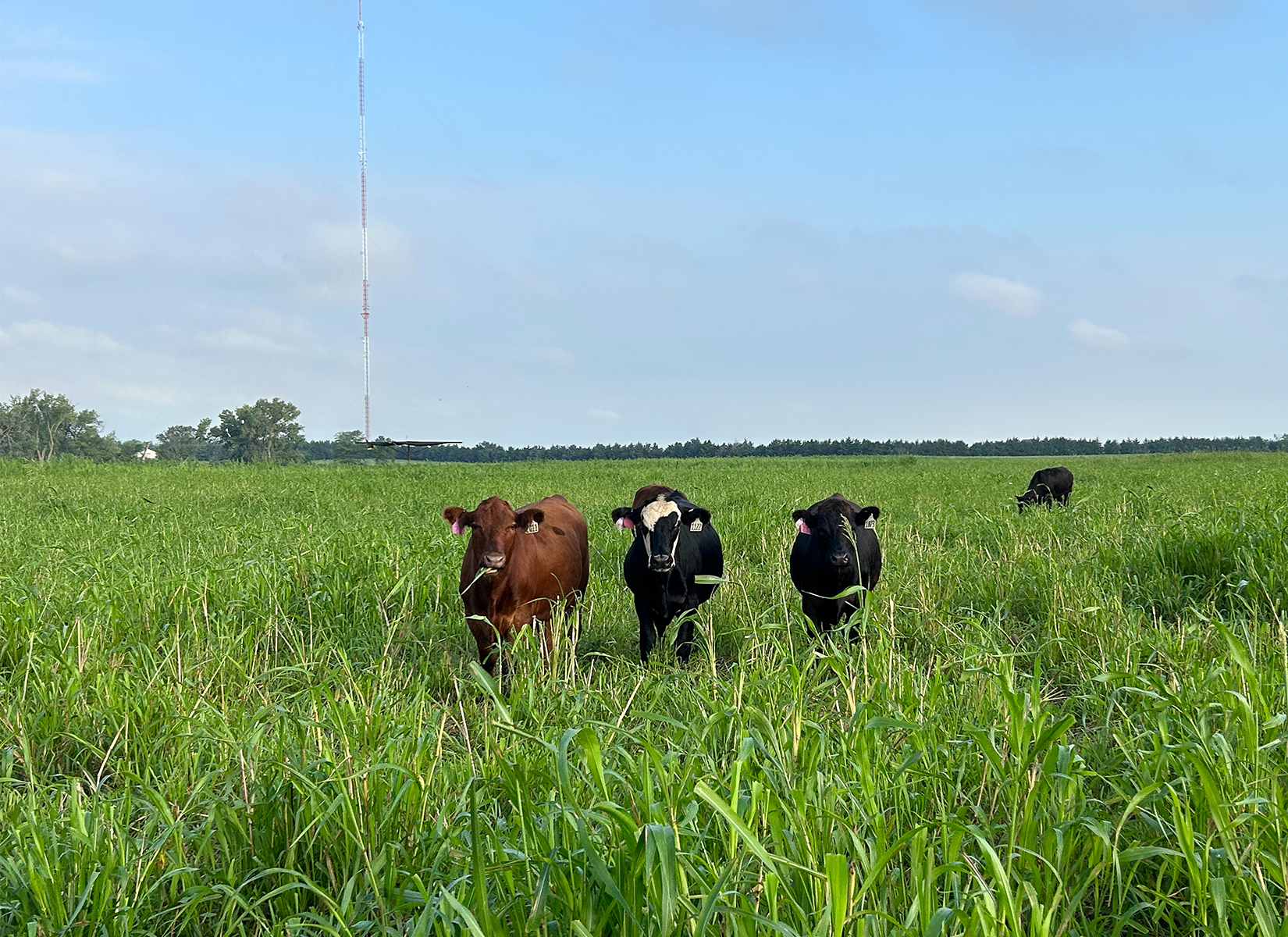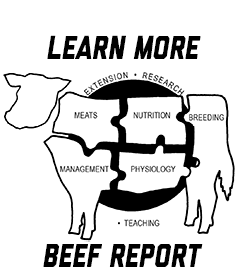Beef Systems Initiative
at ENREEC
ENREEC News Update...
Value of Annual Forages Systems on Marginal Land?
As the value of corn and soybean grain has increased, so has the usage of marginal cropland for grain production. This has led to a reduction in the land that produces perennial pasture and hay, thus enhancing the use of forages that can be produced within cropping systems is critical to the future of the cow/calf and stocker industry.
When cattle producers were asked their opinions on research needs related to cow/calf production. They identified decreasing feed costs as a top priority and wanted to know “can annual forages be cost competitive with cash crops on marginal land and how do we optimize management of these forages?”
Thus, a 100 acre trial on marginal cropland will start at ENREEC in 2024. This project will evaluate the soil health impacts and economics of an annual forage system on marginal cropland relative to traditional cash crop rotations of corn and soybeans. Additionally, productivity and profitability of cow/calf production will be compared to growing calves grazing these annual forages.
The overarching goal of this project is to address producer questions about the advantages and disadvantages of incorporating double-cropped annual forages for grazing cattle. This project will lead to cattle producers understanding both the economics and sustainability of utilizing annual forage systems and learn the class (cows compared to growing calves) of cattle that would maximize net return. With current challenges of producing more beef on fewer acres, understanding of efficient and sustainable management systems is now more important than ever.
- Mary Drewnoski, University of Nebraska Associate Professor, Beef Systems Specialist

|
The goal of the Beef Systems Initiative (BSI) is to develop and support implementation of beef production systems that optimize feed resource use, natural resource conservation, and producer success in Nebraska through improved management of perennial grasslands and systems of integrated crop-beef cattle production. Beef Systems Initiative studies at ENREEC focus on integrating crop-livestock systems. Research looks at perenniel grasses, grazing strategies, calving systems, greenhouse gas emissions, grain yields, soil health, and more with a focus on regenerative agriculture. ENREEC is the ideal setting for BSI research providing the land base for crops and grazing studies. The cattle herd utilized for the BSI projects is also utilized by UNL's Department of Veterinary Medicine and Biomedical Sciences. An example of BSI research includes a five-year study at ENREEC evaluating the profitability of planting and grazing oats cover crop after early harvested corn silage. Stocking rate ranged from 1.7 to 0.6 steers per acre based on oats biomass. Calves grazed from early November until oats biomass or weather limited intake. Average daily gain of calves was 1.97 pounds. The system was profitable four out of five years, with an average profit of about $136 per steer. Weather had the strongest impact on system profitability. Late summer planting of oats for fall/winter grazing could benefit producers weaning calves in the fall or feedlots purchasing calves at low cost in the fall. Learn more about other projects on the BSI link on the right. |
Beef Systems Initiative at ENREEC
The University of Nebraska-Lincoln Beef Systems Initiative research team is exploring how to improve land use efficiency through the integration of livestock and crop production systems. Research focuses on:
1) Optimizing the utilization of crop residues by grazing and harvesting, and determine the effects on agroecosystems;
2) Evaluate strategies to increase efficient use and productivity of range and pasturelands through strategic timing and density of stocking and shifting species composition to more productive species;
3) Evaluate effects of integrating annual forage crops into year-round forage systems for beef production;
4) Develop innovative beef systems that match shifting forage resources;
5) Conduct multi-faceted education/extension program to disseminate research results, to include extension papers as well as regional conferences on the use of crop residues, annual forages, and range and pastureland by livestock.
UNL Center for Grassland Studies provides an administrative platform for trans-disciplinary integrated beef systems research, extension and education. The goal of the Beef Systems Initiative (BSI) is to develop and support implementation of beef production systems through efficient management of perennial grasslands and systems of integrated crop and beef cattle production. Research scientists and extension specialists from the Departments of Agronomy and Horticulture, Animal Science, and Agricultural Economics, and the ARS Meat Animal Research Center collaborate on this project. Learn more about the Beef Systems Initiative

Beef production research and education at ENREEC facilities includes:
| Beef Feedlot | Beef Systems Initiative | Cow/Calf | Feedlot Innovation Center | Livestock Feedmill |
| Barta Brothers Ranch | Beef Mobile Lab |
